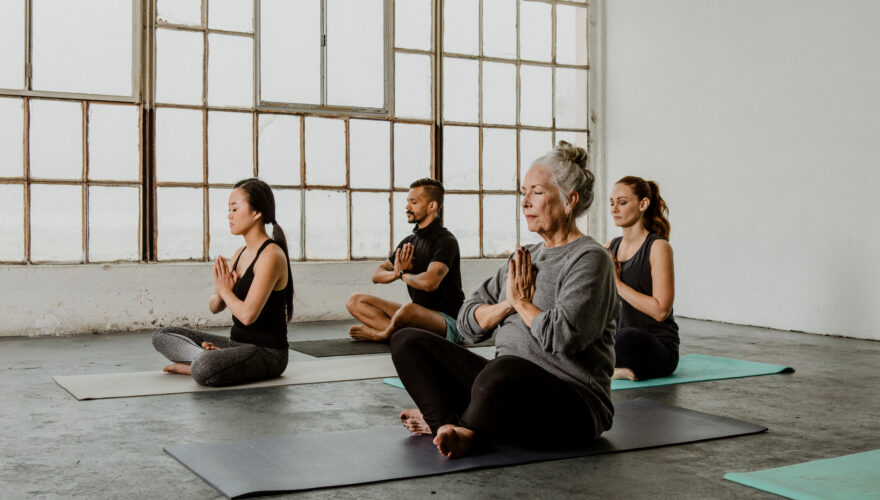Aurelie, can you describe the Online Research Community approach?
Online Research Communities (ORCs) or Market Research Online Communities (MROCs) are closed platforms where selected users are invited to take part in a wide variety of activities online. If you’ve ever wished that you could go back to a participant and ask more of them a few days later, ORCs are the right tool for you.
What benefits are in for the client?
An Online Research Community is the best ongoing insights tool for any brand. Regardless of your industry, category, customers (or patients), it is a place where you can ask questions, get feedback, build relationships with future brand ambassadors, as well as source and test ideas. Beyond enabling you to be agile with your research, ORCs provide you with the customer data to back all your decisions along the innovation process and gain traction within your organization.

Can you give us examples of projects that have used or are currently using ORCs?
Our clients choose to run communities for different lengths of time depending on the requirements of their projects:
In 5 days (what we call a short-term ORC), one of our FMCG clients in the food industry tested prototypes for new milk-based products that were born from a first phase of design with HYVE’s designers.
Over 3 months (what we call a medium-term ORC), one of our clients that produces baby goods ran several medium-term communities with us to support the development, testing and refinement of new products for mums.
Since last year, we’ve been running an ongoing (long-term) community for a car manufacturer who uses our platform to run sprints with customers and co-design new digital services for improved navigation in their cars.
What are the latest trends or technological changes affecting ORCs?
ORCs are becoming more mobile & more intuitive for participants to use on the go, with a special focus on countries like China where users spend significantly more time in apps than consumers in other markets (China is the largest app market globally). This way clients get even more agile feedback but also more spontaneous answers than with any other research method.
Discussions between moderators and participants will look increasingly similar to messaging apps. They will include emojis, speak to text, chatbots, but also fluid exchanges of media (images, gifs, videos, audio clips). Experiments with Artificial Intelligence for research will not escape Online Research Communities, ranging from moderation to community engagement and partial analysis of comments.
And as the world is becoming increasingly digitized and urban, brands will not only have one short-term ORC in one market at a time, but will rely more intensely on constant, regular and fast customer feedback via the use of long-term communities.
Do ORCs help change the customer culture within clients’ organizations?
When I started working with ORCs many years ago, there was always “internal marketing” services attached to any community and project. That means that we would spend time at the client’s, showcasing the community, hosting drop-in clinics where any stakeholder could ask any question live to participants, creating posters or videos that bring to life some comments from members around specific topics of interest within the business. These actions go a long way to raise interest and get traction within the business, as well as make stakeholders increasingly customer-centric. Today, I still promote these initiatives and offer to spread the customer voice as far as possible within any of my clients’ organisations.
Is there a statement from a customer that made you very happy?
To me, there are 2 types of customers. My client is my first customer. Whenever a client logs in to their community, reads participant comments and asks me questions about it, this is the best feedback and proof of engagement that I can get on the project. It’s even better if my client starts sharing these stories with their colleagues or sharing ideas and designs from participants around their organisation. One of my clients once installed a digital wall in the entrance of their building that would randomly select quotes from live activities on their ORC and display them in the business, so anyone could have access to customer input and be inspired by it.
The second type of customers I look after are my client’s customers, the end users who will buy the brand’s products and engage with the brand’s services. What makes me happy every single time as a moderator is to see the dedication of my participants. Once on a community project, I asked some of my most active participants if they would like to record a short video to give their feedback on the community directly to my client. Totally voluntarily and without any incentive, all of them recorded a video within a few days and I brought these videos to a review meeting, to the great surprise of my client. This initiative did not only bring me and my client’s team closer together as partners in this project, but also my clients and their community members, as community participants felt involved, heard and received feedback on their requests after the meeting. Today, on another project, I am asking community members to take part in UX testing interviews, totally spontaneously and for free. We have already booked interviews with half of them. This is how powerful ORCs can be.


